#into 'what if your only system of justice was inherently evil'
Text

screenshotting for use instead of forcing them to see hella tags but as someone who has a constant background of narration around special interests going on in their head which eventually will start to run out of "canon compliant" possibilities and start experimenting with crossovers: this is why I struggled for a bit to do a coherent plotty crossover between daredevil and nbc's hannibal. this is another rambling "for me and literally two other people with my interests and way too interested in meta-compliancy" post:
basically: daredevil and nbc's hannibal have conflicting main themes in ways where they don't as easily synthesize into a new coherent theme. nbc hannibal basically amounts to: what does it take for a person to become a 'monster,' or otherwise transform into a version of themselves that would be a terrifying stranger to them previously. and it sort of frames it as... not necessarily a power fantasy, but it frames trauma as something powerfully transformative. you become a version of yourself that can survive/thrive/take control in the hell you've ended up in. you will surprise yourself what you are capable of doing when it's your only option. but at the same time, its a sort of "succumbing" to your situation.
daredevil is almost antithetical to this. matt's whole thing can kinda be summed up as "even after everything, it's still you." you can go through any amount of trauma and still be able to recognize yourself after. you can stick to your principles even when pushed to the limit and come out alive, and being able to do so is important. he IS his principles, and even though he constantly falls short of himself, his struggle is a definitive trait of his. whenever he starts to abandon his principles is always tied to him losing his sense of self.
he cannot win (in the long run) if he abandons who he is, even if it's only an internal struggle. it's especially prevalent in the comics where basically whenever he abandons his principles he has a bit of a flip-out and tries to abandon "matt murdock" entirely, and then struggles to maintain whatever new identity he takes and has a whole identity crisis/mental breakdown. his strength is his stubbornness and refusal to remain fallen from his standard of self.
so obviously, one of these themes need to bend so far it breaks when put together. put matt in range of the BAU/Hannibal's house and its the big book vs thin book meme. in part because matt's biggest struggles in his narratives are against structural violence and systems (not to mention... the smells...). "there's this one evil guy causing 90% of the problems" is again basically antithetical to matt's narratives, or are at the most just his weakest plots.
ALSO, a lot of the murders in hannibal get treated as combinations of three categories (by Hannibal, who I would say has the most Thematic Influence over the show): 1) they basically deserved it and they were better off being dead in whatever form than alive (mason, mischa's killer), 2) what the killer gained from their death was more important than their life (sorta the case of melissa, her death being the photo negative so will could understand the ripper), 3) their death was important to the killed person, they were only able to ascend or transcend something in their death (many of the ripper victims and general murder victims.)
Basically "agreeing" with Hannibal, or adopting his viewpoint, (or basically being 'seduced' by the story) requires viewing deaths in those three ways. It requires a sort of dissociation with the reality of a person dying in any practical matter. any death becomes metaphor and symbolic, and the symbol is more important than the ending of life, it transcends it. this also doesn't rock with matt's themes.
even if you go serial killer AU matt's relationship with violence, and the temptation of committing murder, is based around practicality. it's that killing would technically be the most efficient way of stopping someone from hurting other people ever again. it's how he could cut through the red tape and financial security that protects fisk or fisk's stand-in, the way they've manipulated systems of supposed justice to hurt people (and specifically innocents), and just end it for good. obv in cases where that does happen (by his hand or others) it again leans into the fact that there is no single bogeyman that can be killed to stop evil or whatever. if fisk dies, there is a replacement to that power vacuum, if matt steps into that role to try and control it, he fails miserably.
hannibal approaches the seduction of murder with: and it's actually awesome? while daredevil approaches it with: it won't actually help you, and it won't fix anything. you will only destroy yourself. both of the (shows at least) fixations on catholicism also have parallel approaches with hannibal encouraging you to become your own god and daredevil reminding you that you aren't. will is basically betrayed by his friends and community while matt is consistently supported by his.
ultimately, nbc hannibal is very metaphorical and artsy and pretentious (i say lovingly) while daredevil is like. How Would Superpowers Effect The Local Law Economy.
#i almost made this also about why alternia AU for daredevil would be based#but this is way too long already#and i kinda wrote a bit about it in a prev post#but basically it transforms the theme of 'how can systems of justice that tend to fail still be used to help people'#into 'what if your only system of justice was inherently evil'#WHICH IS AWESOME#daredevil#hannibal#posting this without rereading any of it i already spent too much time on this#no read more Read My Post Boy#varcahs speaks
32 notes
·
View notes
Text
You know what’s interesting?
Dick didn’t set out to murder Zucco with the intent of being a killer. He viewed it as an unfortunate byproduct of his actions.
His real goal was to “purge the world of criminals” because “darkness needs light.”
Do you realize how unhinged that sounds? It means Robin wasn’t created from anger. It was created from the messed up psyche of a child who realized at 8 years old that the entire world needs something better than what it was given and so he went out and became it.
I cant properly explain how insane that is. It’s like putting the logic of the Joker inside the mind of child but turning it for good. Everything is falling into place now. That is why the Joker hates Dick-he is the one Robin the man couldn’t break. Literally COULDN’T because when he’s facing Dick, he’s facing the version of himself that would have existed if he had put himself to good. That was would break HIM.
Imagine spending the better part of your life doing your utmost worst to show Batman that people and the system are inherently evil only to have him fall head over cowl for a version of yourself to completely invalidate your reason for existing. How psychotic would you turn when you realize you have nothing to prove?
This also explains why Dick is so well adjusted and sociable in a way that Bruce and the others aren’t.
Bruce loses it when he loses his children, he thinks it’s a failure of his abilities and doubts his life’s work.
Jason loses it when he thinks he’s been replaced because his reason for being is having someone care for him.
Tim loses it when he comes to a dead-end. He feels helpless and lost when he doesn’t know the next move because his reason for being is being able to solve what’s wrong.
Damian loses it when he feels abandoned. He feels hurt and broken because he’s a child who wants to be loved.
The reason Dick was the perfect choice for Dark Crisis and to become the dawn of DCU is because his sole reason for being is to be the light.
That is why Bruce refused to destroy a planet when Superman asked him too. That is why Dick was the only person in the universe who could control the Darkness infecting him when even Deathstroke lost his mind to it. That is why the evil Justice League chose Dick of every one to kill-to make a point.
This is why he’s looked up to by major heroes such as Superman, Wonderwoman, the Titans, the children, the villains, and the civilians.
This is why Harvey Dent called Robin Dick “Batman’s secret weapon.”
Although anger was the baseline emotion, Dick doesn’t have anger issues because:
Robin wasn’t created for revenge. It was created with the intention of building a world so unrealistically good, that the level of the vision Richard Grayson was aiming for and set the standards for- is so terrifyingly inconceivable.
And that-is why he is a happy, feral, monster.
#robin was so much more than the result of an angry child#he set the standards so high he scared bruce for what he aiming#bruce didn’t enable him-he leashed him#dick grayson#nightwing#bruce wayne#batman#joker#tim drake#red robin#damian wayne#robin#jason todd#red hood#robin dick grayson#batfamily#dc universe
10K notes
·
View notes
Text
Some things associated with New Age that aren't inherently bad
Since this blog can get kinda heavy sometimes, and because there's some people out there who think that anything remotely adjacent to New Age is evil and must be banished forever, I figured I'd write something on elements it includes that aren't necessarily bad.
Its general concept of God and divinity
New Age beliefs typically posit that God, or Source, effectively split itself into many different souls in order to have different kinds of experiences. There's nothing wrong with this model of divinity in itself, since it doesn't by itself imply anything hateful or suggest any kind of action that might lead to harm. Where it gets messed up is when people start claiming that if you're suffering, it's because you deliberately chose to have this kind of experience before you incarnated. That's just victim blaming, and it's wrong.
Energy healing
Energy healing on its own is a harmless practice, and many people do report feeling better for doing it. Dismissing energy healing as inherently bad in itself would be like dismissing prayer for recovery as inherently bad. It's really not. The problem is always when people start believing they should only rely on energy healing or prayer, or fall into the belief that pharmaceutical medicine is sinful or an evil conspiracy.
Listening to relaxing tones
No, those "healing frequencies" probably won't cure any serious ailments. But that doesn't mean they can't make you feel more relaxed or help you focus. You don't have to subscribe to any specific belief system to listen to these audios.
Glossolalia
The New Age practice of speaking in light languages is a form of glossolalia, which basically involves relaxing and speaking whatever sounds immediately come to you. Doing it can be cathartic and relaxing, and you don't need to subscribe to any specific belief system to do it.
Tarot reading
Reading tarot cards doesn't require subscribing to any specific spiritual belief system. Nor do you even need to be spiritual at all; you can read tarot cards with the perspective that what you're doing is prompting your own mind to consider things from new angles.
Meditation
Meditation is known to have beneficial effects, and doing it doesn't require subscribing to any particular belief system. Yes, it's a problem when somebody subscribes meditation as a cure-all, or use it as a form of spiritual bypassing, but that's a problem with the teacher, not the practice itself.
Eating more plant foods
Provided you don't have any allergies or intolerances, eating more fruits, vegetables, nuts, and the like usually isn't a bad idea. The problem with New Age is when it effectively moralizes food by decreeing certain foods "high vibrational" or "low vibrational," or when it's pushing conspiracy theories about modern processed food items being intentionally poisoned to block our psychic abilities or keep us dependent on the healthcare system. And obviously, it's appallingly ableist to tell someone that they could cure a chronic illness by switching to an all-natural vegan diet or something.
Belief in aliens
It's a big universe, and it's not unreasonable to think we're not alone in it, and that maybe there's beings who are observing us. The problem is when belief in aliens becomes part of a conspiratorial worldview that scapegoats certain groups of people for the world's problems, displaces real history, and misuses other people's traditions and beliefs.
Belief that things can and will get better
To paraphrase Terry Pratchett's words in The Hogfather, we sometimes need to believe in things that aren't true (such as justice and mercy) so they can become true. Believing that things can change makes people feel like their efforts are worth something. Meanwhile, when everyone's got a doomer attitude nothing will change for the better because nobody will even try.
One problem with New Age's optimism in specific is that they tend to believe that things getting better is contingent on converting a large number of people to New Age spirituality, which includes getting them to accept a large number of conspiratorial beliefs that target and harm vulnerable minorities, and/or distort and erase the actual spiritual beliefs of people from different cultures (many of whom are marginalized minorities and/or have been severely harmed by colonialism already).
Another problem is when you get the whole 5D ascension thing going on. 5D ascension is basically the New Age version of the Rapture, and just like the Rapture, it's always said to be right around the corner, but it never materializes. (If you'd like examples, here are predictions for 2012 and 2015.) Very concerningly, New Agers often list a number of physical and mental health symptoms as "ascension symptoms." They were claiming this as far back as the 2010s, when December 31, 2012 was supposed to be the big day. (Here's an example.)
Basically, hope and belief that things can get better is important - but it's also important not to hang our hopes (and medical decisions) on supernatural predictions that have already failed multiple times.
Wanting to promote compassion and understanding between people
This is a great thing to want! The problem with New Age isn't that they want to spread peace and harmony, but rather the way they want to do it without really listening to the people they supposedly want to help. You can't, for example, genuinely fight colonialism if you're engaging in cultural appropriation and misrepresenting their spiritual traditions - you're an active part of the problem. Promoting compassion and understanding begins with you shutting up, listening, and learning without imposing your own preconceptions or reacting from your ego. You're not doing this if you're looking for mythology to project aliens onto, or dismissing anything you don't want to hear as a conspiracy.
And here's some critical thinking tips before you go
When you're evaluating any belief system or practice, it's always important to remember that belief and practice are not the same thing. Most of the time the practices are harmless in and of themselves; the actual danger comes from the conspiratorial and morally polarized worldviews many practitioners also subscribe to. Nobody's ever died from putting rose quartz in their room or getting a reiki session. They have died from refusing evidence-based medical care because someone convinced them that the health care industry is a scam and will also separate them from Source.
When it comes to beliefs themselves, ask yourself what kind of narratives they're upholding. If they basically promote the same kind of conspiratorial narratives used by Nazis, witch hunters, or far right Christians to justify their hatred and violence, that's a pretty strong sign that this belief is bullshit. But of course, there's a pretty stark difference between believing that aliens could be out there, and believing blood-drinking reptiles have invaded the Earth.
180 notes
·
View notes
Note
Hey bae 🙏 do you think we could get something about turning sith!luke to the light side?💗
Hiii dear anon, thank you for your ask🩵
It's been a while since I received one and I'm sooo excited, especially since I get to talk about Sith!Luke, my beloved
I wasn't sure what exactly you wanted but I hope you like this discussion of possible scenarios anyways <33
• when it comes to turning Sith Luke back to the light, I think it really depends how and why he choose the dark side in the first place and what interpretation of him we're talking about
• if, for example, he turned during the original trilogy, you'd have to approach him differently than it would be the case if he grew up raised by Vader
• while his struggle to remain on the right path for himself and the galaxy is often highlighted in the movies and books, trilogy Luke never strays too far away from what Obi-Wan and Yoda taught him
• he certainly has his darker moments in which he considers everything he loves lost, but ultimately, even then, he'd rather sacrifice himself for the greater good than reach for the power Vader, and later the Emperor, offer him
• "Never. I'll never turn to the dark side"
• "Soon I'll be dead and you with me"
• so should he fall or, for whatever reason, deliberately make the decision to join the dark side, I see two possible ways in which this could turn out, his stubbornness and wish for justice and equity being one of the more important factors
• 1) he's convinced it's for the best and in favor of many
• it's hard to resist a seemingly easy solution in times of crisis, especially if it's offered in a tempting way and Luke is by no means unreceptive to manipulation
• however I do believe he'd realize his misconception rather quickly and so the most prominent thing keeping him from pursuing the light again wouldn't be his ignorance but his deep shame
• because of the weight he carries he's very hard on himself and no less so as a Sith
• consumed by the dark side he'd probably be less focused on improvement but on self doubt and hatred instead
• he may even go as far as to remain in this situation willingly as a way to punish himself
• not only would he think himself deserving of being miserable but also think it's for the better if he never comes near his loved ones again, afraid to hurt them
• here his stubbornness hurts him decidedly more than others because obviously there's still good inside of him, he just isn't allowing it to be there in favor of another misconception and self doubt
• ("I don't deserve to be around my family after what I did.", "Because what if I'm truly evil and don't know it?", "What if they fall victim to one of my mistakes and get hurt?")
• in this case it'd definitely be possible to make him see reason
• Luke is able to and eager to learn from the past, as well as adapt to a new point of view
• if he can believe it's for the best to join the dark side, he can believe the opposite once more
• it may need patience and coaxing, much affection, assurance and insistence but through your love (romantically as well as platonically) he'd be able to find himself again
• 2) his opinion of the galaxies political situation changes to such an extent that he's convinced his fall to the dark side is genuinely important in order to implement a just system
• I will be honest, I have no idea how that would even happen but let's stick with the idea anyways because we're taking about Sith!Luke here
• (maybe he was brainwashed???)
• in this scenario I imagine it to be rather difficult to make him reconsider
• not only is he now convinced of what he's doing is inherently good but also of the fact that the people not sharing his opinion have some devious plans to make those he's so set to protect suffer
• Luke firmly stands by what he believes in and while that is a wonderful attribute to have it's rather problematic when it's used for harm
• that man is ready to fight for his convictions and I see him defending them in a way similar to how he resisted the dark side in RotJ
• he's still Luke though and not stupid, I belive it still possible to reason with him especially if you're someone he admires or otherwise holds dear
• in order to get him to listen to you though you'll need time and patience to get under his skin
• now let's take a quick look at the interpretatiom of the Sith!Luke I write about
• to some extent he's still the same person as trilogy Luke but while they share certain traits, they turned out like opposites due to the circumstances they were exposed to during their lifes
• basically my Sith!Luke is a "What if Luke and Leia were raised with the dark side by Darth Vader"-version in which he grows up in a galaxy after the Empire defeated the Alliance and thus doesn't know anything about Jedi since they just,,,don't exist anymore
•(granted, this is a rather dark AU but I saw no other way in which Luke would act like he does in my fics, without any hope of him changing his ways)
• (there are of course works that discuss a different outcome, exploring Luke turning to the light side despite being raised as Sith, so it is of course a possibility if that's what he's set up to do)
• (I, however, like to center my Sith!Luke around the idea of just that being unthinkable since it's so far fetched and ooc for a person so full of light and good)
• (please keep that in mind when continuing to read, xx)
• this too is the only case in which I think it wouldn't be possible to turn him to the light side because the concept in itself is a foreign and outdated one
• it does exist, yes, and Luke is aware of it too, after all he's well studied and educated, has to be if he is to be the successor of his father
• but it is nothing that seems worth looking into further since the classical "fight" between good and bad is a thing of the past
• because while Luke may not agree with every political stance his family takes he knows he'll be the Emperor sooner than later, able to make changes as he likes
• in this regard, depending on the role you take on in his life, you might be able to slightly influence his decisions and/or his treatment of a certain group of people
• if you're important enough to him he'll listen to what you have to say, though he won't necessarily implement it into the system
• you are well advised to approach such attempts carefully though since you don't want him to suspect you of disregarding his status and position
• or, even worse, want to alienate him from his family and loved ones
• because no matter the universe, Luke would move worlds for those he cares for and accordingly (mainly Sith!Luke) grows easily suspicious when someone so much as questions their behavior, motives, etc. or insinuates to be against them
#ask#luke skywalker#luke skywalker x reader#star wars return of the jedi#luke skywalker x you#luke star wars#dark luke#dark luke skywalker#sith luke skywalker#sith luke#star wars#star wars fanfiction#star wars a new hope#star wars empire strikes back#star wars legends#star wars alternate universe#star wars headcanons#fanfic
36 notes
·
View notes
Text

Not gonna get into danganronpa another spoilers because this whole scene is something else that I’m still processing but I absolutely love this line. Like to bring up milgram I think this is an idea which can reflect on lots of the characters as well. The idea of basing your entire existence off of a certain thing/person/ideology and then for something to happen that completely destroys that. Your entire person has been stripped away and just what’s left? You can’t comprehend your own existence or meaning without that specific attachment and you start to question all of your actions based off that…
I can only really think of John, Kotoko, and Es here (and possibly Amane and Mikoto to an extent). And John bases his life off of Mikoto, Kotoko upholding justice, and Es being the warden.
John’s idea of his whole existence and reason for being is Mikoto. It’s the only reason he believes he exists and if he were to fulfill his role he’d “disappear” as he would be completely worthless without him. John tries to repress and ignore his humanity and reduce himself as a tool to protect Mikoto and that’s all he can see himself as. But now Mikoto’s starting to not deny his existence and feels pure hatred for everything about him. And what will happen to John, when the person he’s dedicated his entire life to and desperately wants praise from, denies his existence? What will he be but some worthless existence that is only a burden, to him.
Kotoko. An ideology of upholding justice and punishing evil that has completely overtaken her. She has pushed herself into a role of a “fang” for justice, protecting the weak and persecuting evil. But even so matter how much she tries, she knows her goals are unreachable. She denies relationships and attachments to other people based on this ideology. Kotoko admits that she does feel attachment to the prisoners, but has to deny them in order to fulfill the role as a tool. And believes that pain and violence is necessary to achieving a greater good. Trying to deny any regret because wouldn’t it be easier to believe you’re entirely in the right? She latched onto Es, believing them to be similar as the warden who carries out judgement on wether the prisoners are forgivable or not. But now, Es has denied her whole ideology, her whole existence due to the pain she’s caused. Kotoko wants to believe that what she did was right and that Es, another enforcer of justice would accept her, because that’s how it is.
And Es… they’re the warden of the prison. There’s nothing more to them than that they believe. Es has no memories of their identity or past before Milgram and immediately latched onto the identity given to them, of being the guard. Es took this role as their entire identity, an extension of the milgram system in order to interrogate and judge prisoners. I think Muu put this best.
“Warden-san, we call you "warden" because that's what you are, right? And I was assigned the role of prisoner, but that doesn't mean I'm now nothing but a prisoner at heart, too. After all, I'm still me.”
Es has an unstable sense of identity, to the point they latched on to the first thing they were given in order to give themselves a purpose and a meaning for existence. And Kotoko calling them “imperfect caused them to question their identity. But as the story progresses Es will probably begin to learn about the audiences control and the truth behind what they assumed to be their verdicts. That their will never was 100% their own. Who knows what Es’ past was, but eventually they’ll likely have to tackle it and their whole identity, the warden, the arms of milgram, is gone.
gonna think about Mikoto and Amane here as well. Mikoto, although may not seem to be as first, focuses his entire identity around other people. He’s the friendly sociable guy who’s easy to chat with. But that’s all he believes he should be, I guess. As perhaps this mindset is upheld by an inherent fear of other people rejecting him, so he focuses all his attention and identity on being a social person. He’s never truly friends with people, as perhaps that would be “too close” and open up the possibility for danger. He doesn’t completely deny his identity like the others, but he molds and shapes it in a way that is acceptable to others. He likes what everyone else likes and does what everyone else does so the fear of being rejected for being different won’t hurt him. But now he’s stopped denying John’s existence and his DID, believing himself to be crazy, and to be completely rejected from other people, his entire sense of identity to an extent. And especially with John scaring other people off with the mindset that will help Mikoto, he has now been completely distanced from everyone else and now has to come to terms with himself, but not the ideal persona he put on to be acceptable to other people.
Amane is a more different case as she in a way has rejected that idea, but not completely. Growing up in a cult it’s very likely that she was always conditioned that she was just a servant for god. That all the good things she did were actually god blessing her and all the bad things a fault of her humanity, herself as a person. She is in a unstable relationship with the whole submitting her personhood to her religion, as she sacrificed her ideologies in order to help a cat. But at the core, that wasn’t about herself and her identity, rather a focus on the cat’s life. Amane’s murder was her will. Rejecting everything and fighting for her life in direct opposition to what she has been taught her entire life and how her identity should be, a rejection of that and a glance into “herself”. But once again, this murder wasn’t entirely self motivated. She’s still broken enough that she can’t fully grasp herself as a person besides god and religion. And a large cause of her murder was out of the death of the cat, rather than simply protecting herself. Amane still slips back into the belief that her personhood is entirely dedicated to god. As she tried to convince herself and Es that the only reason she killed is because they deserved religious punishment and she is in the right for carrying out god’s will, once again denying her personal reason for doing so. Reducing herself to “we” on behalf of her religion, that this isn’t herself anymore. Amane is in a limbo between rejecting her personhood for god, but at the same time rejecting the suffering she’s been through in order to save “herself”. Amane’s case is so interesting, as there’s no clear answer of what she believes in here, and it is truly fascinating.
#milgram#Milgram theory#milgram analysis#amane momose#mikoto kayano#john kayano#john milgram#kotoko yuzuriha#es milgram#uhhhh this was meant to be a quick analysis how did this turn into an exploration of the identities of 5 characters#And comparing it to a scene from dra which focused a lot around the loss of someone’s beliefs completely destroying their identity?#May analyse that scene directly because the whole philosophical and psychological concepts coming into play there is just soooo cool#and man I was kinda figuring out stuff as I was writing this but like I said it’s so interesting how Amane isn’t completely dedicated to go#Like the other characters I mentioned who have dedicated their whole identities to something#And Amane’s at the struggling between her true self and her perfect religious self#But perhaps she doesn’t entirely realise this conflict going on within#Which is interesting as a realisation of their identities would probably cause the other characters to lose it#But Amane it’s coming to her in a different way#She’s so strong uahhhahhajajshshshs#Tw cults#Ok now thinking about this more I’m starting to see this whole ideology apply to other dra characters as well#Man this is just so interesting#Like Kinji although having nowhere near as bad of a situation of amane was in a way forced to repress his emotions his entire life#Due to religious reasons and to devote his life to god and reject personhood#Surprisingly he’s actually not a bad person but still is very stoic and avoids other people due to being taught those values#And kinji’s a whole parallel to Tsurugi so this would be really interesting#I would talk about Tsurugi here but this is primarily a milgram post so for everything he’s like kotoko with a dedication to justice#But handles it in a very different way#His story is just way to long to analyse now#But hey this is an invitation to play (or watch bc downloading the game is hard technically) danganronpa another
24 notes
·
View notes
Text
still thinking abt what happens next. its such a good dissection of blame + morality+ perpetuation of cruel cycles. however i have to admit i don't particularly subscribe to the main body of commentators ' "everyone is scheming and has awful intention" take. i mean. hanlon's razor.-- milo obviously dismembered a dead body. which frankly in no world sounds better than saying he killed her. like, he is obviously culpable of that + incapable of processing that culpability but it's jarring to see everyone immediately locking onto gage as some kind of evil and actively manipulating from the start mastermind. they seem pretty obviously to me to be a preexisting Type Of Guy: isolated, miserable, (obsessive) parasocial relationship w/ people who Do, in fact, Exist, and aren't fake characters in a story (haha). his treatment of milo seems way more in line w/ that kind of "genuinely ignorant of how normal friendships and relationships work" than "secretly plotting your demise "-- the weed & crossbow thing read as familiar to me. pressuring, yes, but not actively so. thats just like... the way people are? the way u act when you're kind of awkwardly acquaintances/frienfs w someone and u invite them 2 partake in ur hobbies. just sucks that gage's hobbies are literally only stalking murderers + getting high w the nastiest bong u havr ever seen + shooting white monster cans in the woods with a crossbow. the effect is negative, obviously, because milo is a fucking basket case on a ton of medications with a criminal record for sawing off a girl's arms and the looming threat of inpatient if he doesnt behave over his head. not downplaying the other thing btw that's in a different category imo & while the kiss itself wasnt inherently a Bad Thing to Do imo their reaction & justification absolutely was.. still kind of weird 2 me that it appears like there's a bigger sympathy for claire (dealt with the trauma by becoming a transphobic turning point usa girlie who uses her sister's notoriety to advocate for punishing minors in the justice system even worse & treating her gf like shit) than gage (obviously fucked in the head minimum wage worker with no bar for what a normal interaction or relationship looks like at all.) OR vikki (trans woman of color whos career! is to stir up shit! even if she was kind of a cunt!) anyway the milo / claire parallels are baller i love when people fucking hate each other but are so similar... girl its been nine years stop sticking your fingers in your own bloody wounds stop it stop it stop it! when will u stop reliving the trauma ever day for its own sake. (claire's self harming actions here are obviously infinitely worse because she is like,,, Actively Hurting So Many People. and for what! so she can wear awful dresses and get hit on by oily white senators and drag the bleeding dead weight of her sisters body around everywhere she goes?) ahhh what ever. good book i have to pack now.
#txt#what happens next#whn#ahhgh. haven't read a story that made me like this in a while!!!! esh u all need to be poured into concrete bricks and dumped in the ocewit#with the exception of audrey and aaron and the tcc yters!!
93 notes
·
View notes
Text
The True Power of Phineas Thatch
After the long drought of Phineas content ever since s2e18, I adore the amount we get in s3e1.
Ever since the gala, something has been building inside his character arc. We get to see it reshaped in season 2, but with the first episode out, I can almost feel what it's building towards. Phineas has a lot more power over the narrative than even he realizes, and should he put the pieces together, the very system of the Trust itself will be at risk of imploding. He's lived in the Trust for almost his entire life, he understands more than anyone else still living what it's like to be on both sides of the argument, and to be honest? Neither is particularly great!
If Phineas can build up the courage to speak on behalf of his fellow Trustees - the ones like Ginsberg, Fuze and Sherman who never had the chance to let their story be heard, and those of Midst whom the Trust willfully neglected - everything the Trust has ever built will be for nothing. I think that's the reason why the Trust has made such a strong effort to control the teletheric. The core concept of the Trust is built around karmic justice, of doing the right thing just because it's right, but what about the poor souls on Midst? Did the Trust not commit an inherently un-valorous act in their negligence? Does it matter more to do the right thing for the Trust, or to do the right thing for the the right reason?
For the whole of the Trust to learn what happened on Midst is to prove that the scales of Valor and Caenum CANNOT be balanced without the suffering of others. So which is it then? Is it better to keep good and evil balanced, or is it better to do whatever is in your power to make sure that Valor is ALWAYS the stronger force?
Phineas has seen valor in Lark, and yet it hasn't been recorded. Lark willingly went to save Tzila when the moon began to fall, she made the conscious choice to save Phineas from the foldwail back in s2e6 even though she KNEW doing so would only hurt herself in the long run, and despite every piece of the universe telling her no, she's STILL risking her life to 'save' Sherman. Is that not worthy of Valour? If it were to be removed from her total Caenum count, which poor soul would take the fall?
I think Kozma knows this. She's been in the fold for a long time, and knows what it means to harness its potential. She can see what Phineas is capable of doing to the Trust, and she wants nothing more than to see that strand of the web come to its conclusion.
All he needs is someone on the inside. Someone who knows the lengths to which Phineas has had the system fail him. Someone who knows how to run a teletheric broadcast. Someone who happens to have a big backpack full of recording equipment.
#midst#midst podcast#phineas thatch#kozma laszlo#lark#demarin ginsberg#fuze#sherman guthrie#tzila guthrie#jonas spahr#backpack#midst spoilers
15 notes
·
View notes
Text
ROUND 1 / SIDE A / POLL 9
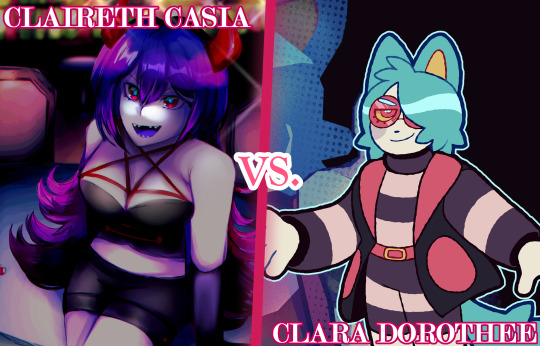
Claireth Casia (@kalopseance) vs. Clara Dorothee (@solobodor)
Claireth Casia info:
Description:
A tall succubus known as The Gambling Queen. Extremely good at gambling, as that title suggests. She's addicted to…ahem.. 'magic potions' that are illegal in the kingdom she lives within, but she has somehow managed to seduce her supplier to give her them for free.
On the surface she is loud and playful, but she makes no attempt to hide what is beneath the surface- hating the idea of "justice" and proclaiming it to be a self-righteous excuse to feel good about your own selfishness, Claireth believes the most merciful thing in the world is to be honest about your cruelty.
Claireth does not think anyone at all is truly capable of caring about someone else more than they care about themself. She is convinced that any kind action you take for the sake of someone else- is always actually done out of self interest, always actually to benefit yourself in some way instead of out of compassion for another person.
A belief that you only "care" about others because they benefit you.
A belief that even the most selfless people, when push comes to shove, wouldn't hesitate to abandon the people they claim to "care" for the most- in order to help themselves.
However, she does not regard selfishness as a flaw.
Though she believes everyone is naturally selfish and unempathetic, she does not percieve these as traits that make someone a bad person. She believes that- the only thing that makes someone a bad person- is any attempt at self-justification.
As she believes that being selfish and acting for your own sake alone is natural and universal, she thinks of that in itself as its own justification, and she believes it is the only justification anyone needs. That it's simply normal to be selfish, and one way or another, everyone will hurt someone for their own selfish desires.
And she believes that that anyone who tries to argue some justification for their actions will always be worse than someone who doesn't.
Even so, she also despises those who feel immense guilt and regret for their actions, believing that wallowing in self-pity is worthless and only shows how weak people can be, and she often assumes that such self-hatred and guilt is ultimately just excessive self-pity with the ulterior motive of making others sympathize and forgive them, regardless if said person feeling guilt is even consicous of that fact.
She does not believe that people are "good or evil" inherently- she views everyone as morally grey overall, but she seems to hold a particular grudge against those who use lies to gain the trust of others.
Because Claireth thinks that honesty is merciful- that being honest about your selfish motivations without trying to gain trust is, at it's core, the most merciful thing you can do- because by gaining someone's trust and making them think you are a good person, betraying them will hurt them worse than anything you could do to them if they never trusted you at all.
As a result, she's very open and honest about her self-motivated interests when cooperating with others. Interestingly, though, this makes her a rather loyal ally; as long as you remain useful to her, she will not go against you or lie to you. She is violent and unapologetic of that fact, but she is not particularly sadistic nor is violence ever her ultimate goal.
Crimes:
beats people with a spiked bat
steals and cheats
horrible to everyone around her, scary
weird morals system
Other notes from the submitter: shes hot
Clara Dorothee info:
Description:
A Girlfailure disguised as a Girlboss.. or Both?
She's a Cat girl (but like an actual cat) who absolutely loves being able to control every aspect of her life and will do anything in her power to keep it that way.
She scams, gaslights and manipulates the employees of her very own company into doing the dirty work for her and attempts to kill anybody that would try to stop her.
Crimes:
repeatedly tried to murder her sibling
scams
hired two people, turned them against one another, manipulated one and isolated then tried to kill the other (failed)
graverobbing & unethical experimentation
Other notes from the submitter: Original Creator is Bugwizard (on Toyhouse) If that helps, she has a TH page with much more info https://toyhou.se/5829401.clara-dorothee
43 notes
·
View notes
Text
tbh i dont think villain deku is inherently a bad concept but he's been oncelerfied so badly it's kind of difficult to imagine a scenario that doesn't suck total ass.
like, there's practically zero good examples of it and a billion shitty ones - making him evil for the sake of it, arbitrarily replacing his fashion sense (this shouldn't happen basically no matter what - what does his social standing have to do with how he dresses lmao? do you think a life of crime precludes someone to wearing dumbass shirts and garish sneakers? participation in this phenomenon is loser behavior), totally rewriting his childhood, giving him a "villain's quirk", forcing him to be subservient to some shmuck who abducted him, all might denying him heorics/ofa so he becomes a villain out of spite (for some reason - usually because he suddenly develops a hatred of all might, as if he'd ever not worship the ground that man walks on even if he beat deku senseless (and let's be Extra Fucking Clear here that he wouldn't, ever)), he never meets all might so he (insert random previously-mentioned scenario here), et cetera. it's all thoughtless, boring, and trite - taking the path of least resistance in pursuit of an aesthetic, completely disregarding the character's, well, character. it fucking blows. if you want aesthetics without character, go find some brainless png slot machine to appropriate - they'll probably have a design that's more "gremlin-like" or "feral" anyhow, you annoying motherfuckers
what potential does a concept like "villain deku" have then if the existing popular scenarios are dogshit? it's very narrow, to be honest, and it doesn't make sense without some degree of interference in his life during or after the hero course. essentially: he learns of the injustices the hpsc operates on and goes rogue over it, in a manner *maybe* similar to lady nagant, though he wouldn't kill the director (he's got the potential to be faster than a speeding bullet; gunfire doesn't pose an imminent threat on his life).
(to be clear, i think intervening in his character at any point earlier than his entry to UA is fucking with who he is on a fundamental level and is lazy. work with canon even just a little bit for these "canon divergent" scenarios, please - your work and creativity will benefit from it, i promise. and calling it an alternate universe when the only change is making deku a villain is still lazy because it'll fall into one of those shitty cliches i was just bitching about.)
that's the type of thing that could lead him to be classified as a villain - rebellion against the system of power he intended to serve and its violence. he wouldn't just be out killing people or committing violence for fun, though - he has the make of a "beloved vigilante" among the populace; a righteous man of the people who's conscious of the injustices faced by the everyman. a robin hood among heroes, villains, and vigilantes. stain, if he rescued instead of killed. and was more intimidating anyways, somehow (it's the poor hygiene).
he has the drive to strive for justice in a way the people in power don't appreciate - let's not forget how he, alongside iida and todoroki, were treated by the cops after the stain incident; how the school responded to the bakugou rescue squad; how he was scolded for protecting UA from gentle and la brava (even if the incident was comparably mild, and he wasn't scolded for his action so much as his inaction. the point here is that he went against authority, not that he got in deep shit for it). deku doesn't care what the consequences of his actions are as long as (he believes) he's helping/defending someone or something he believes in.
also, like ‐ and pretend we're living in the world where ofa remains intact - he'd never get fucking caught. basically every power in ofa's arsenal is an escape tool. he has multiple distinct speed/mobility amplifiers, cover in the form of smokescreen, can fly, and (most obviously) danger sense. he escaped the cops in whm with just full cowling and blackwhip. he's untouchable with the rest of it.
#he could've escaped from dictator if he really wanted to. his downfall was wanting to save the civilians and get intel#and he could've escaped from 1A too if he really wanted to.#but it hurt his heart too much to power through his exhaustion just to ignore them#when he already wanted to be by their side so badly#he's repeatedly demonstrated suicidal devotion to a good cause. that kind of drive would be terribly inconvenient for the hpsc
2 notes
·
View notes
Text
Psycho-Pass
SUB/DUB
⭐⭐⭐⭐
Wow! I'm really enjoying this thus far and I have a lot to say about it.
Starting off with the psycho-pass concept in-it-of-itself, it is an incredibly flawed system. This does not just measure your threat based on crimes you committed in the past, but rather if the system believes you are mentally capable of harming someone. Now, this is obviously flawed because this likely targets all mentally ill people, believing them all to be too far gone and a threat to society. I believe this is shown with the victim in episode one, who despite being innocent, was almost executed because her score was too high. It is later said that she is recovering from this incident and her psycho-pass is improving, showing that these people are not beyond saving and should not be thrown in prison or possibly killed.
This is also shown with Kagari, who was told that he was going to be a criminal at age 5, when you're told that you're going to be a criminal at such a young age, it's hard to become anything but that. This is something that does happen in real life, people in bad situations are not given the opportunity to get better, and no one sets them up for success.
This also seems to be a critique of the Japanese conviction rate, unlike America, Japan's justice system runs on the idea that people are "guilty until proven innocent". In the show, people are given no trial, and no opportunity to defend themselves or prove their innocence. Sybil simply determines their fate, and the detectives execute them without a second thought. This is again shown with the victim in the first episode, Kogami was ready to kill her because of her score, despite her having done nothing wrong.
The Enforcers are also interesting to me as their scores are just as high as the people they kill, yet they are allowed free range of the world because they are willing to work with the police. In other words, your value to the police and to the world is determined based on your labor and service to them. If they stop their work, they will be sent to the same place as all the other convicted criminals, no longer of use to society.
It's clear that Tsunemori and Ginoza represent two different sides of the police. Tsunemori is far more forgiving, she is willing to give the people around her a second chance (something it seems Sybil is not fond of), however, this does make her a little naive. She is very book-smart, but she might not have a full picture of what the real world looks like.
Ginoza is very to the book, he follows the authority of Sybil and does not question that. He does not respect the Enforcers and is often distrustful of their opinions. He doesn't like to rely on intuition but rather on stone-cold facts. It's clear that he isn't one for learning from your mistakes, and would prefer if you were the perfect detective from the get-go.
There is also the role of the internet, which is certainly an interesting one. I'll save most of my comments on this for the next post as this is already getting long and I would like to see how the technology develops, but I will say this much.
Hate runs rampant on the internet. Incel culture is at an all-time high and anonymity leads to many unspeakable crimes. I have zero doubt that there are men who hate women enough that they would only ever interact with virtual women, and there are men who want to hurt women so bad that the satisfaction of a virtual one is not enough. While I agree with Tsunemori that the internet is neither inherently good nor evil, I think evil is beginning to overtake good as hate is much easier to spread online than anything else.
That being said I do love the internet so I can't say much, anyhow I really enjoyed this anime and I will probably watch the in-between episodes dubbed so I can multi-task but I definitely need to know the whole story.
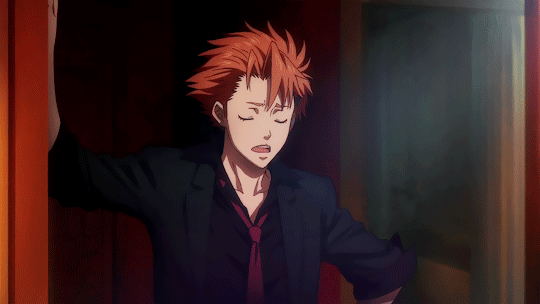
also, he is so fun I love him, I can fix him I swear.
19 notes
·
View notes
Note
Yeah, everything we've done has been to help others. No matter what the consequences might have been, that fact is undeniable
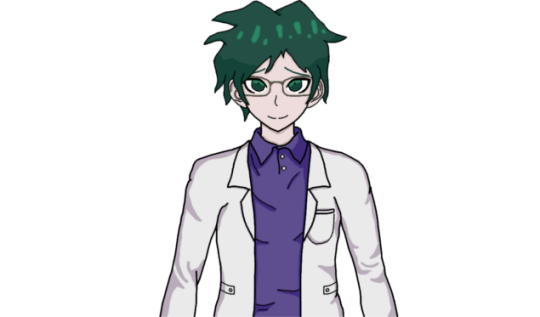
Yeah.
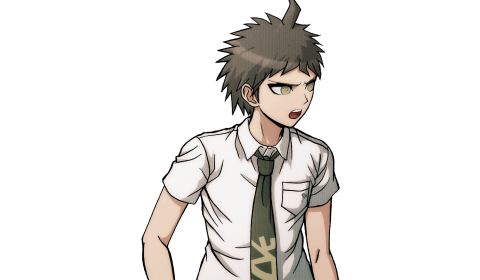
Nakamura, what do you make of all this?
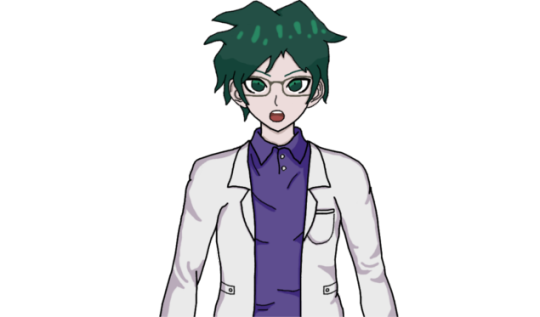
Me?
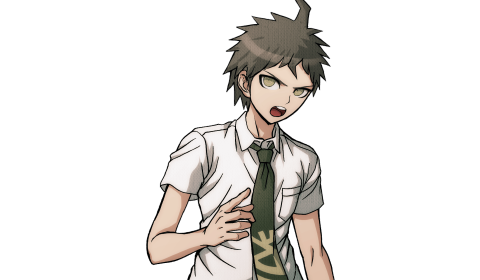
Yeah...I think you're the only one here who really agrees with me.
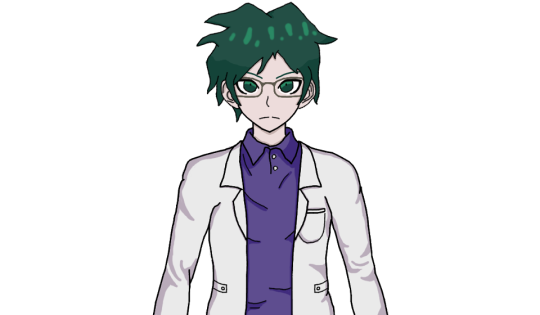
...You want my honest opinion?
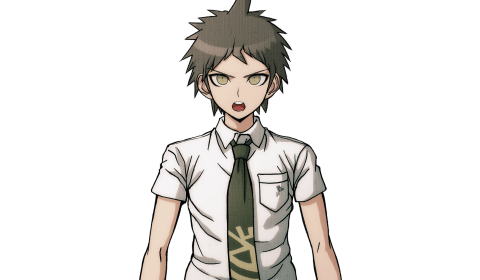
It's why I asked.

You're right. I believe killing is always wrong, but only because that's one of the values I've chosen to accept.
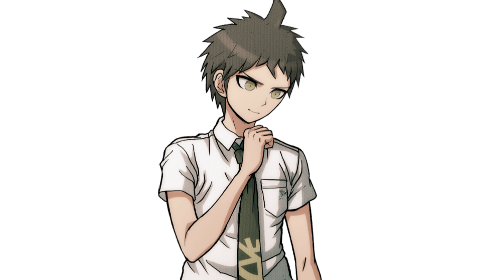
What do you mean?
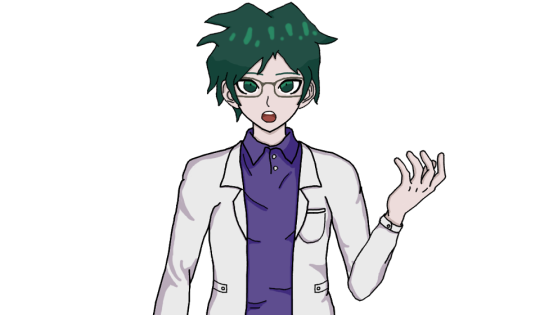
Well, I'm an existentialist. I don't believe there's such thing as inherent meaning. The universe doesn't reward good or punish evil, at least not purposefully. There's no such thing as cosmic order, no higher justice, no system of rules for anyone to follow.
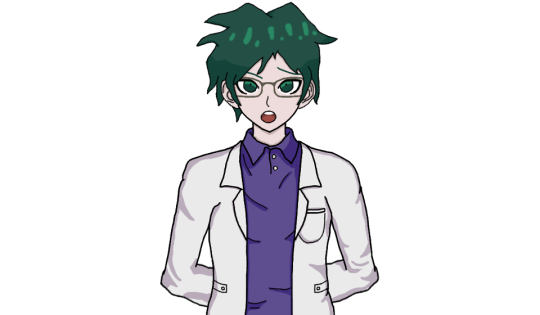
The only meaning there is in life is that we assign to it. Some concepts, like morality, only exist because we create them and put it there ourselves.
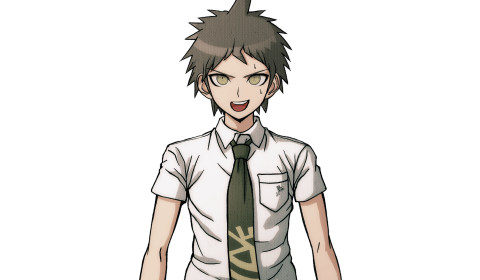
That's...pretty bleak.

You think so? I actually find it's a relief. It's even a little empowering.

After all, if there's no cosmic order, no inherent meaning to anything, that means it's up to us to create it. And because there's no template to follow, nobody can tell you that your decisions are wrong.
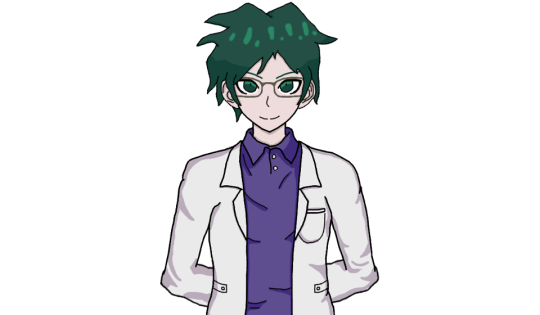
So, if you want to stick to your belief about not killing, that's entirely your decision. You're the one who gives it meaning, and if you want to stick to it, drop it, that's entirely up to you.
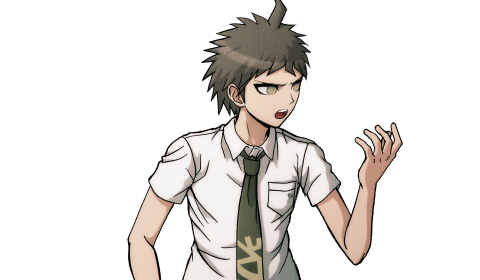
...What if it really is the wrong choice though?

...I won't lie, there are going to be consequences from whatever you decide to do. And you may not be able to find a solution in time.

But that doesn't equate to you needing to become anything.

The only one who's ever going to truly have the capacity to judge you for your decisions is yourself. And with how rough things have been, maybe you should start being a little kinder to yourself.

...Yeah. Maybe.
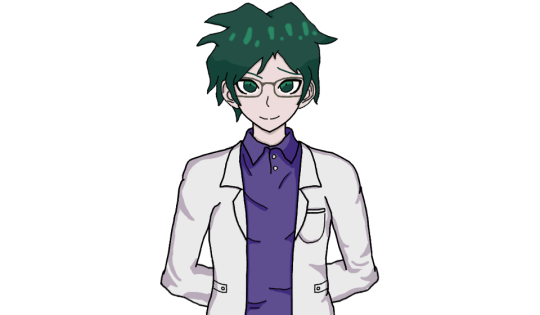
I hope you sleep well tonight.
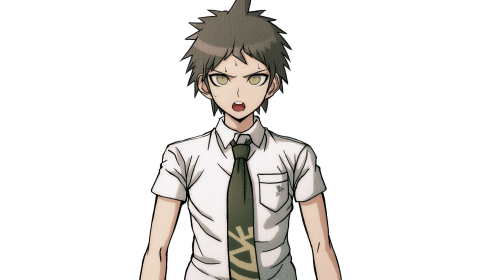
Nakamura?

Hm?

Thanks. And, I think you should take your own advice.
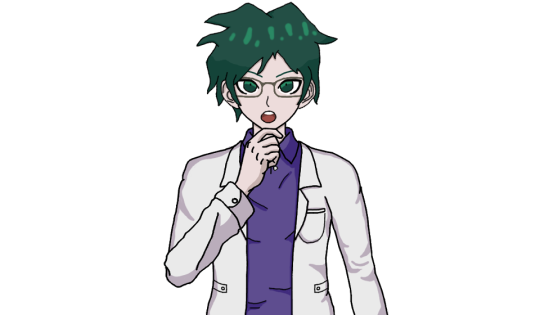
...

I'm working on it.

If it helps...I don't blame you for what happened to me. The Tragedy, me becoming you-know-who...

It wasn't your fault, okay? I'm not mad at you and I don't hate you for it. I...hope that takes a load off your mind.

...

Thank you. I'm...glad to hear that.
#danganronpa#sdr2#super danganronpa 2#hajime hinata#kyoji nakamura#a student out of time#DR#The Price of Fate arc
12 notes
·
View notes
Text
“In December 2011, global private security firm Stratfor was hacked. Stratfor maintains high level relations with intelligence, political, and military officials from the US to Israel and provides consulting and intelligence services to private companies and governments around the world to aid in public relations, counterinsurgency, disruption, and regime change efforts. They have described themselves as a “shadow CIA.” 148
The resulting data dumps revealed widespread surveillance and illegal actions by government and private entities. We only have access to this information thanks to the hack carried out by Anonymous. The anarchist hacker Jeremy Hammond was sentenced to ten years in prison for the action. Similarly, we only know about the FBI’s bloody COINTELPRO program—which resulted in the aforementioned lethal campaign against AIM as well as the assassination of Fred Hampton and several other Black Panthers—because a group of revolutionaries broke into an FBI field office and stole the documents. In other words, the only way we ever know what our governments are actually doing is thanks to illegal direct action, leaving any discussion of government accountability rather hollow.
In the Statfor leaks, we learned how governments view social movements, and how they try to neutralize us. What is important to emphasize is that Stratfor, like governments all over the world, use the lens of counterinsurgency when dealing with the dissent of their subjects. With one exception, they do not make a distinction between the middle-class high school student going on strike on Fridays to raise awareness about climate change, the journalist researching the cancerous effects of widely used pesticides, the anarchist setting fire to construction equipment to save a forest from being bulldozed, and a Native elder leading a ceremony in an encampment seeking to regain treaty lands from a settler state. They view all these people as enemies. The only distinction they make is how to turn different kinds of dissidents against one another in order to buy out some and marginalize the rest. Remember that at the heart of counterinsurgency is the belief that all of a government’s subjects are potential enemies.
According to a framework used by Stratfor and other security consultants, there are four types of dissidents and a three-step method to neutralizing them. There are the radicals, who “want to change the system; have underlying socio/political motives; and see multinational corporations as ‘inherently evil.’”149
These organizations do not trust the … federal, state and local governments to protect them and to safeguard the environment. They believe, rather, that individuals and local groups should have direct power over industry … I would categorize their principal aims … as social justice and political empowerment.150
There are the idealists who “want a perfect world” but because of their “intrinsic altruism” can be made to sympathize with the interests of industry and shy away from conflictive positions, there are opportunists who will seize “the opportunity to side with the powerful for career gain” and there are the realists who are “willing to work within the system” and are “pragmatic. The realists should always receive the highest priority in any strategy dealing with a public policy issue.”
The three steps are rather simple:
First, isolate the radicals. Second, “cultivate” the idealists and “educate” them into becoming realists. And finally, co-opt the realists into agreeing with industry. “If your industry can successfully bring about these relationships, the credibility of the radicals will be lost and opportunists can be counted on to share in the final policy solution.”151
It is more than a little ironic that those who consider themselves realists are considered the easiest to manipulate.
This is why it is neither sectarianism nor an excess of zeal when we declare that NGOs and humanitarian activists are part of the state’s counterinsurgency campaign. We can see this when we look back at resistance to the oil industry in Nigeria. When Ken Saro-Wiwa was led up to a scaffold and executed, his death was counted. He was a poet and a nonviolent protest leader, after all.
But what happened to his peers who learned the lesson, who valued their own lives, who took up arms or gave shelter to those who did, and who actually hurt the profits and cut off the production of the oil industry? When they were murdered by British or US munitions fired from helicopters dispatched by the Nigerian government or Shell Oil, those very well-meaning NGOs did not include them in their list of murdered land defenders. Their lives are neither counted nor valued.”
- Peter Gelderloos, “ The Solutions are Already Here”
34 notes
·
View notes
Note
What’s your opinions on the prison system and on prison rehabilitation?
I am actually a (semi-active) prison abolitionist. One of the beliefs that drives me is that everyone is redeemable with the right interventions and support system, and that people's actions are a result of their life circumstances, not an inherent evil that they possess. Because of that, I don’t think we have the right to deny people an opportunity for redemption in favor of retaliatory “justice” that ultimately helps no one but temporarily makes people feel better.
And on a more practical note, our prison system in the US doesn't work. The United States has the sixth highest incarceration rate in the world, at 531 people per 100,000, and the largest prison and jail population in the world at 1,767,200 individuals. This is down from 2018, where the United States had the highest incarceration rate in the world with 698 people incarcerated per 100,000. Of those incarcerated, 47% of federal prisoners serving time (as of September 2016) were convicted of a drug offense, not a violent crime, and half of all persons incarcerated under state jurisdiction are incarcerated for non-violent offenses.
And our rates of incarceration disproportionately impact certain communities but not others. As of 2018, Black males accounted for 34% of the total male prison population and Hispanic males accounted for 24% of the prison population, despite the fact that they are only 13% and 16% of the US male population respectively, and despite the fact that white men are as likely to commit crimes as their non-white counterparts. 16% of transgender adults have been in prison and/or jail, compared to 2.7% of all adults. 49% of state prisoners and 40% of federal prisoners are diagnosed with or show symptoms of mental illness, and about 30% of individuals without pre-existing mental health issues develop them while incarcerated. People who enter the criminal justice system are also overwhelmingly poor. About 66% of people detained in jails report annual incomes under $12,000 prior to their arrest. Another study found that incarcerated people had a median annual income of $19,185 prior to their incarceration, which is 41% less than non-incarcerated people of similar ages.
Despite all of this, prisons are not actually lowering violent crime rates, and they may be increasing the frequency of certain non-violent crimes. Within three years of being released, 67% of ex-prisoners are re-arrested, and 52% are re-incarcerated. Prison, parole, and probation operations generate an $81 billion annual cost to U.S. taxpayers, with an additional $63 billion for policing- money that could go into preventing crime by building and supporting communities, education, and helping people meet their basic needs. And that's not even discussing the horrific way we treat people who are incarcerated and the way incarceration impacts health, well-being, and life prospects for those who experience it, or how incarceration impacts families and communities.
That said, obviously, abolition is not something that can happen overnight. There are many incremental changes to our current prison system that need to be made before abolition is even a possibility, and many non-carceral systems that need to be put in place in order to support a restorative or transformative justice system. It's not an easy path, especially because there are so many people who have a vested interest in keeping this system as it is. But I think we have a moral obligation to take those steps and to fight for a system that is better than the one we currently have.
I'll leave it here for now, but I'm super happy to talk more about this subject if you all are interested. I know it's complicated and seems counter-intuitive, and so I would love to help make things easier to understand if I can.
3 notes
·
View notes
Text
@iris-sunflower I’ll respond to your reblog of my post here, since my OP was already very long and I don’t want its notes to be cluttered:
1) Children and everyone having a right to public, accessible education is such an important value for me. Is youthlib against the idea of funding public schools?
I’m not The Single Valid Youthlib Representative(tm). There are many different youth liberationists who don’t necessarily agree with each other on every single point. I can only give my own opinion, which I believe is the most accurate interpretation of the principle of youth liberation: Of course I agree, and I acknowledge that public schools are currently underfunded and should have more financial support. Gatekeeping from education is oppressive.
It would put all minors at a disadvantage, and we should be improving children’s education so they have a fairer prospect for their future. Being literate, understanding math especially finance, etc.
I agree it’s a problem that so many children are unable to access any education in the first place. But I would caution against taking the “less educated = less successful” at face value. The issue isn’t that being less educated automatically, inherently means one will become disadvantaged, but that capitalism creates these disadvantages for uneducated people. It’s unfair that people who haven’t had a chance to go to/remain in school are also gatekept from jobs, resources, and respect later in life. Resolving the issue (re classism and adultism) involves making it possible for children to be able to go to school instead of being unable to access it, but it also means fighting for justice for children & adults who didn’t get to go, instead of just leaving them behind in the dust now that it’s too late or whatever. It’s sad that if someone can’t understand the (overcomplicated, very bullshit, should-not-be-existing-in-the-first-place) financial system capitalism has forced onto us, then they’ll be disadvantaged in life.
And, some children/minors/adults just can’t understand math or finance or learn literacy well in the first place, regardless of how good their teachers/educational materials/settings are. It is unfair to expect that they should, or treat them as lesser, or refuse to accommodate them. Everyone, regardless of capability, should be able to expect a good future for themself, and to have the resources to live securely.
And, formal schools (both public and private) are extremely adultist and violent to children. Does that mean homeschooling is the solution? No, because family homes are also extremely adultist and violent to children. I’m frustrated at a lot of the discourse I’ve seen, where survivors of violence from schools or violence from the home have tried to discuss our traumas, only to be dismissed and told that we should just suck it up and deal with the flaws of the institution because the alternative would be “worse.” Many people have experienced immense abuse and trauma from both schools and our families. I want to think of solutions beyond just trying to pick the lesser of two evils.
(Official) schools (in their current form, at least) aren’t particularly good at teaching in the first place. They don’t teach how to really understand the concepts of “math” so much as rote memorization and computation, for example. The way subjects are taught in schools focuses more on trying to train them into good capitalist workers, not help them develop life skills for themselves or learn things they actually want to and choose to learn themselves. Meanwhile a lot of potential educational materials (paywalled academic texts, informative books in general, politically unpopular info/arguments like honest analyses about abuse dynamics/what to do in more difficult situations, niche things they don’t really care about because they’re not profitable) and sources of education (i.e. people, places from the outside) are withheld from children because of the formalized schooling system which narrows what and how they can learn, and meanwhile tries to force students to learn whatever they don’t want and don’t need to learn, and is especially hell for disabled children/minors being forced to attend and being overloaded with work when they can’t handle that, plus all the higher likelihood of bullying and abuse from authority figures they can’t escape from.
So I believe youth liberationists, and leftists in general, should be focused on both improving access to education and ensuring that people who had not been able to access education or just genuinely don’t want to or cannot are not being punished for being uneducated either. Right to learn things doesn’t mean also being okay with forcing children to learn things (which is also a major problem right now). And grassroots education outside of formal schooling hooked up to the state/capitalist systems / the nuclear family home should also be a priority. Though it would help, “reform & improve public schools” is still not a solution to the fundamental problem of enforcing a divide between “learning” and “the rest of life” / “place to learn” and “anywhere else” / monopolizing good (or as good as possible) education in the hands of authorities.
We should be making schools better for children not losing their right to an education.
(I prefer to frame children’s rights discussions as something which centers their input and their efforts; should not just be a thing “we” pass down onto “them” on their behalf instead of them being directly involved in the process.)
(Note that nowhere in the entire article I reposted was there any claim that children should “lose their right to an education.”)
2) Does losing parental rights make parental abuse obsolete as a legal protection? Confused here.
That’s not what “right” means. A right you have is something you can do, not something you have to do. “Parental rights over their children” doesn’t mean parents are being made to care for or be nonabusive to their children; “parental rights” are the mechanisms which allow parents to abuse their children because their children are viewed as their property, or to force invasive medical procedures onto/withhold needed medical care from their children because they’re viewed as having a right to make their children’s decisions for them regardless of what the children themselves feel, or to decide what their child’s future must look like because of their “right to control” them. “Parental rights” means that outsiders are barred from housing an abused/neglected child because only the parents may choose where “their” children live.
On the other hand, parental obligations (or responsibilities, or duties) are a rather different concept. For example, every person has an obligation (or responsibility) to not abuse or otherwise violate other sentient beings. Everyone also has an obligation to not hoard essential resources they won’t use themselves while others are in desperate need but can’t access them—for example, (IMO) very rich people with control over their finances are obligated to redistribute their wealth downwards ASAP, and are committing ethical violations when they do not. As for obligations specific to parents: if they have children under their care who cannot leave/acquire that care elsewhere, they have a responsibility to feed, clothe, house, and otherwise provide for their children wrt essential resources to the best of their physical and financial capability.
Parents should face consequences for abusing children, which unfortunately will happen sometimes regardless of efforts to prevent crime. Some parents are just cruel.
I like to think of this question a bit differently. The issue here is that right now, if a parent has cruel beliefs/intentions, then abuse will happen, because they have near-unchallenged power to enact their will for cruelty. Consequences for abuse which has happened are important, of course, but I’m also interested in preventing abuse from happening in the first place, instead of just keeping up the system where kids have to roll the dice and if they land on a cruel parent then that’s just what they get and having a good parents just depends on their luck. I want to work towards a world where regardless of an ideological bigot/authoritarian’s personal desire for cruelty, they will be unable to act out the abuse they want, because they no longer have the power to do so unresisted. This is also why general social justice organizing (if it’s good) doesn’t focus primarily on reforming bigots, getting them to change their beliefs/intentions, but on reclaiming power and autonomy so that despite what the bigots might still believe, they can no longer make those beliefs matter to us as easily.
Leftists and anarchists in general are often told that we are too utopian and need to understand that “violence will always happen no matter how much you make social changes.” I dislike this framing; first of all, I’m not a doomer, and I do not want to say there certainly will always be violence, because I don’t think it is possible to guess that with 100% accuracy, and I like to leave room for a little hope in the world; second of all, it’s not really a relevant objection, because we’re not about gambling on the possibility of there being no abuse, but about taking steps to reduce abuse as much as we can and make it as hard as possible for abuse to happen.
But if parents aren’t “legally responsible,” are they not also going to be found liable for abusing their children?
I’m thinking about a certain Reddit post I read a few months ago. A woman was raising an infant with her (boyfriend? husband? not exactly sure which it was). She hadn’t wanted the child, and he had. She was slowly realizing that she just couldn’t bring herself to love the kid, and the childcare work was annoying and frustrating and exhausting her. Her bf/husband really liked the kid and was enthusiastic about taking care of them and nurturing them. A lot of commenters on that thread told her that she should leave them, because she’s not suited to be a parent for the child, as they grow up they’ll be able to tell that she’s just faking her emotions and actually dislikes them/doesn’t love them, so she should halt the toxic dynamic as early as possible. That stuck with me a lot—it would’ve been so helpful to a lot of kids if it was normalized for parents who don’t like a kid to be able to give them to better-suited, more loving caretakers who do want to have a kid, because many parents are just incompatible, just aren’t fit to parent, personality-wise or otherwise. Expanding the options for everyone to have healthy relationships and get the love and nurturing they need does not mean that neglectful parents of children stuck in their abusive household are not culpable for their harms (i.e. specifically withholding resources when they were needed). And, in general, abuse is wrong when done by anybody to anyone, legal parent or not. This doesn’t change that. And, I don’t really care about the legal system much in the first place because even with laws forbidding extended kinship networks they still don’t actually do a lot about parental neglect or abuse. I’m interested in more concrete questions like “how do we help neglected children acquire the resources/care they’ve been deprived of” or “how do we get abuse victims out; how do we minimize unwanted relationships and maximize wanted relationships; which cultural norms do we need to change to facilitate this.”
3) How would we ensure that children, particularly very young, are being well cared for - diapers, feedings, etc? Currently parents are completely abandoned by the social systems in place. I actually think a reformed/socialist service like cps (unsure of a better word) should be freely provided to all parents. Social workers or volunteers can make sure a child isn’t being ISOLATED which is the biggest factor for abuse. Neighbors may not even know abusive parents have a child and that’s terrifying.
Agreed, though I’d like to point out that this isn’t just something that can only be done by a specially appointed or paid professional group; this is something anyone can do, and especially people already close by. Like, checking up on your friends if it seems like something abusive is going on. Being that person for them if they’re stuck in an abusive home. Normalizing being more attentive to children near you socially, paying more attention to people around you in general, and lending a hand, and creating more interconnected communities which make it harder to isolate someone. It’s kind of hard to imagine given our current atomized hellscape but there are & have been societies in which families weren’t just sorted into single-unit disconnected households, and it was a lot easier to notice if something was off/hold each other accountable; also people fighting for this right now—whether children/minors using the Internet to finally befriend outsiders when they never could before, or having electronic devices they hide from their abusers, or meeting/talking to a friend in secret; or the teachers, healthcare workers, classmates, anyone else seeing them and opening the pathway for questions, help where there were no other options before, etc. & preventing isolation and exploitation wholesale means targeting the root of the problem (the nuclear family’s isolation, thru various political/economic forces)—which is exactly what the article was talking about.
4 notes
·
View notes
Note
Radical feminism gives itself a bad name... It's literally about how men are inherently and irredeemably evil. I hope that you reconsider your position on this.
I implore you to look into the history of Radical Feminism. I will give a basic overview. Keep in mind that I’m still in college studying Women Studies currently, so most of this comes from lectures/my textbook, but I will link sources at the bottom.
To understand this, we need to separate feminist theories and thoughts into two camps. One is Liberal Feminism the other is Radical Feminism.
Liberal feminism looks to fix misogynistic structures (and all other oppressive forces for that matter)within the system that already exists. For example, lets say there is a building where it’s almost entirely men in power and there is a misogynistic culture. A liberal feminist might solve this by putting more women in power there.
Radical feminism on the other hand looks to end patriarchal structures by destroying the structures itself and putting new ones in place where bigotry isn’t present. So going back to that company, a radical feminist may solve this by getting rid of that workplace hierarchy in the first place and creating a new system.
Neither of these approaches to feminism are inherently wrong. There’s some very good arguments from both liberal and radical feminists. But there’s also some absolutely awful ones.
TERFs are radical feminists. It really does not take long to find TERFs when you look at contemporary radical feminism resources and articles. I would never argue that they aren’t, but that is only one radical feminist belief. Radical feminism isn’t something where “this is what radical feminism is, it has to be that.” And their version of destroying systems is misandrist and also usually racists, and I feel it goes without saying that it’s also is transphobic.
My belief that some issues can only be fixed by dismantling the systems that already exist, does not mean I think the answer is misandry or transphobia. TERFs do. Some other RadFem groups do. It’s one of the many reasons I absolutely can’t stand them. They have damned what it means to be a radical feminist in the public eye. This is why I don’t call myself a radical feminist, even though I agree with the basic concept of having to destroy the system itself. TERFs and a few other RadFem groups have taken it to be something hateful and harmful to everyone outside of the cis white women umbrella (yes I’m aware there are POC who are TERFs it doesn’t change that a lot TERF and certain RadFem beliefs are racist).
If you would like to read some not transphobic radical feminist works. I highly reccomend “Feminism is for Everybody” by Bell Hooks and “The Master’s Tools Will Never Dismantle The Master’s House” by Audre Lorde. You should be able to find copies of both of those online. I’ve also linked sources below on a lot of what I’ve said.
Sources: https://www.thoughtco.com/what-is-radical-feminism-3528997
https://www.theguardian.com/commentisfree/2021/oct/17/radical-feminism-social-justice
3 notes
·
View notes
Text
For 125 years the statue of Edward Colston
Stood in the center of Bristol
Three decades of attempts to have it removed through official channels
Resulted in humming and hawing and hand-wringing and ultimately
Dead ends
In 2014, a poll of locals found that 56% of people wanted it to stay
When the system for maintaining our shared public spaces fails
And a monument to a proud slave trader is allowed to stand
In the center of a town, getting older and grander by the year
Sinking his rotten roots deeper and deeper into the ground
The people, I would argue
Have a right, even a moral duty
To tear it down
And to roll it without fanfare into the nearest fucking river
And this is exactly what they did
On June 7th, 2020, against the explicit wishes
Of the democratically elected council and the majority of the city
This is not, despite what you may think or may have heard
"A complicated issue"
White Britain doesn't have the privilege of saying
There is a gray area here
Not anymore
We have been living comfortably in the grey area
For hundreds of years
And failing to do the bare fucking minimum for the people
We have transplanted over here against their will
It is hard
To not feel more than a little cognitive dissonance
When your country tells you that
Racism is a thing of the distant past
While a monument to a professional racist
Stands towering over a major city
With his chin resting lazily in his fucking palms
It took me way too long to figure out
That equality and fairness
Do not always equate to treating everybody exactly the same
Or to insisting that groups with competing interests
Work together to come to a compromise
Why should a group
Whose primary interest is disempowering white supremacists
Be forced to compromise with groups
Whose sole interest seems to be to impede that progress?
I have very little problem, it turns out
With saying Group A are allowed to take direct, destructive action
While Groups B through KKK are not
When it becomes clear that Group A are right
And everybody else is completely fucking wrong
And believe me when I tell you
That it pains me to say that on some level
Because I spent my twenties like many people do
Trying, in vain, to piece together a coherent Euclidean worldview
That looks the same from every angle
Trying to understand where everyone was coming from
Arguing that "morality is relative"
And that "good and evil are primitive ideas"
And that
"There is no right and wrong
Besides the laws we agree to as a collective
And-"
Blah, blah, blah
Fucking undergraduate, entry-level, bullshit
To hear myself today argue that property damage
And vigilante justice can be
Perfectly acceptable means to achieve particular ends
And are, in fact
Sometimes the only way to get justice
In a system as fucked up as our's is
Goes against everything I used to believe in
The thing is, the young man who would tell you with a straight face
No less that
"There is never an excuse for violence
Or for taking the law into your own hands"
Did not realize at the time that that attitude came from a position
Of never having to so much as raise his voice to be heard
From knowing that almost everyone in a position of power
Looked and sounded like him
He had never had to try and communicate his experience
Of being alive to someone who saw him as different and alien
His needs had never been anything other than
Inherently sympathetic and justified
And by arguing that
People should be able to fight for their rights
While in the same breath
Denying them the right to fight
He was more than a product of the system
He was a dedicated defender of it
While self-identifying as progressive
And liberal
And punk
Of all things
You know
At the bottom of everything
I think he was threatened
By the idea that someone might one day come along
And take from him what was never rightfully his to begin with
"The steady march of social change is fine
And good, and should be encouraged, " he thought
As long as he is not caught in the path of it
As long as he's not disenfranchised
And inconvenienced in any way by it
Like if in the process of trying to have your voice be heard
The architects of your pain brought to justice
You so much as moderately delay my commute to work
Let alone ask me to do the emotional labor
Of recognizing my privileged position
Within an oppressive power structure
God forbid ask me to take some personal responsibility for any of it
Then fuck you
And fuck what you stand for
Which, of course, is a roundabout way of saying
"I support your right to protest up until the point
Where I become unable to ignore it"
Which, going further still
Is a roundabout way of saying
"I don't really respect your right to protest at all."
I am getting
Man, I need a fucking drink
I am getting way too wrapped up
In the peaceful protest debate
Which I did not intend to
Which, I think
Is a large part of why the people in power are addressing that angle
So they don't need to
Address the actual reasons
People are
Toppling statues
Ask yourself
What personal qualities do we encourage in this society?
To clarify, I don't mean
What do we teach our children?
To share and be kind
I mean: what qualities do we actively reward in reality?
The only way we can with
Power
And money
Dishonesty
Exploitation
Above all, a pathological lack of empathy
These are the traits our society fosters
We stop just short of selectively breeding for them
And the people who truly embody these values
The people most willing to lie or take advantage of others
Are the ones who rise to the top
By virtue of their willingness to seize and protect that power
By doing what others will not
They become the people who run our institutions
The people who plot our trajectories
They start our wars and they write our laws
And, not coincidentally
These are the people whom we enshrine in history
These are the people we erect statues of
Quote
"I do not admit that a wrong has been done
To the Red Indians of America, or the black people of Australia
By the fact that a stronger race
A higher grade race, has come in and taken their place
I do not admit it
I do not think that the Red indians had any right to say
'The American Continent belongs to us
And we are not going to have any of these
European settlers coming in here.'
They had not the right
Nor had they the power."
End quote
That was Winston Churchill
A de facto saint in British lore for his role in the second world war
And there is no doubt that Britain
Under Churchill's government
Played a central part in defeating Hitler and the Nazi regime
Who were directly responsible for the deaths of 18 million people
Compared to
I don't know
The four million Bengalis Churchill killed by taking their food away
During a famine
A people he said he, and I quote, "hated"
And blamed their slow, agonizing deaths
On them "breeding like rabbits"
He was a man who boasted of personally killing "savages" in the Sudan
And he got mad at others for their "squeamishness"
When they objected to his suggestions that they
"Shell uncivilized tribes" (his words, not mine) with poison gas
And remember that the others objected
Those were not universally held beliefs at the time
His own secretary of state for India described his attitude as
"Not quite sane"
And that he couldn't see much difference
Between Churchill's outlook and Hitler's
He couldn't see much difference between Churchill's outlook
And Hitler's
When talk of removing his statue was brought up
His defenders had the gall to say: "Nobody is a 100% pure"
As if "wasn't a literal white supremacist"
Is an unrealistic benchmark to hold our heroes to
And this
If you don't get it by now
Is just one of the ten thousand reasons
People are saying that black lives matter
Because, for decades upon decades
The response to criticism of this fucking cretin
Who was voted by our country to be the greatest Briton
Was to be told
With a patronizing pat on the head
That to take his statue down would risk us forgetting our history
As if the records of the British Empire's atrocities weren't
Bundled into crates at the empire's end
And sent to the bottom of the sea
That it would be akin to "photoshopping out our blemishes"
As if anyone has ever built a statue to someone
As a monument to a single one of their misdeeds
As if Winston Churchill
And Edward Colston
And Cecil Rodes
And John Mitchell
And Oliver Cromwell
And Horatio Nelson
And the Roberts Milligan Clive
And Baden-Powell
Were all uniquely complicated men who represent
The very best of what it means to be British
And so
I say
If you really don't think that we should take these statues down
If you are truly not in the least bit
Ashamed of these men and what they stood for
You should really take a moment and ask yourself why
What does that say about you?
And if the answer you get from your conscience
Is that these men deserve the symbolic power
We have bestowed upon them
Then why not double down
And put busts of these great Britons up in every town center
Their portraits
Hanging over ever shrinking
Dimly lit
Grey family dinner
As we limp arthritically into our country's next chapter
Stamp their names and the names of every wealthy descendant
Of every proud British slave owner
And slave trader
And war criminal
And concentration camp owner
On every street sign and bank note and home office letter
To do otherwise, you see, would be to allow us to forget
Who we are
Where we came from
That this
This
Is the foundation
On which we built
Our shameless nation
This
In the most literal sense of the phrase
Is us
-The Absolute State of the Union, The Narcissist Cookbook
0 notes